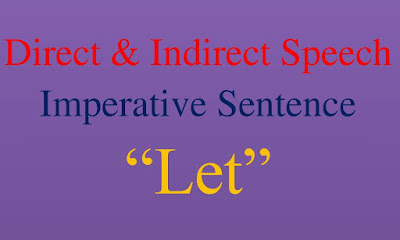Lesson Plan of Antonym (Opposite in Meaning) English Grade V
Lesson Plan of Antonym (Opposite in Meaning)
English Grade V
Students’ Learning Outcomes
·
Locate, provide & use words
opposite in meaning.
Information for Teachers
·
Antonyms are two words that have contrary meanings.
·
Synonyms are words that have the alike or almost the similar
meaning.
·
Homonyms are words that are pronounced the similar, and
are occasionally suggested the similar, but have diverse meanings.
·
A synonym is a word that has almost the same meaning as
another word.
·
Antonyms are words that have opposite meanings.
·
An antonym is a word that is the contrary sense of
another. It originates from the Greek words “anti” for contrary and “onym” for
name such as Here is an instance of antonyms for the word ("good" bad, badly, badness, and evil, evilness,
ill, malevolent, malicious, poorly, and wicked.)
(“Friendly” unfriendly,
unkind, uncaring, unhelpful)
Material/ Resources
Chalk/marker, duster, board, textbook
Worm up activity
·
Start with a game: say a few
sentences in which you are saying OPPOSITE of what is true in reality at that
moment. (E.g. I am late (early) let the students have fun while they correct
you!
·
Tell them that they are going
to learn more about antonyms.
·
Say word and the class are
going to provide the opposite of that word. Such as:
1.
Big/large = (small, tiny,
little)
2.
Hot =
(cold)
3.
Early =
(late)
4.
Heavy = (light)
·
To help students remember
tell them that just like ‘anti’ means against (anti-corruption, anti-
narcotics), antonyms also mean words that are against or opposite in meaning.
Development
Activity 1
·
Ask students to work in pairs
and provide the following word bank which both the words and their opposites in
correct order ( for teachers’ convenience)
and then mix them up when you
give them to students.
Word
|
Opposite meaning
|
Word
|
Opposite meaning
|
Afraid
Ancient
Arrive
Blunt
Brave
Clean
Cautious
Complex
Compliment
Decrease
Demand
Destroy
Expand
Full
Giant
Guilty
|
Confident
Modern
Deport
Sharp
Cowardly
Untidy
Careless
Simple
Insult
Increase
Supply
Create
Contract
Empty
Dwarf
Innocent
|
Hire
Individual
knowledge
Lonely
major
Noisy
Passive
Problem
Quality
Rigid
Shame
Single
Temporary
Unique
Villain
|
Fire
Group
Ignorance
Crowded
Minor
Quiet
Active
Solution
Inferiority
Flexible
Honor
Married
Permanent
Common
Hero
|
·
Ask each pair to locate and
connect to two sets of words (word and antonym).
·
Then ask them to make a
sentence using both words to clarify meaning. E.g. I want to wear clean clothes
and untidy clothes.(to make the task less challenging they can be asked to make
2 sentences instead of one but both sentences should be linked in meaning.
·
Monitor and help the
students.
Sum up / Conclusion
·
Ask the students:
o What are the similar words or synonyms?
o What are the antonyms?
Assessment
·
Ask students underline words
and antonyms and provide synonyms for any one word.
·
Tell them to check each others work for correct spellings, grammar, capitalization and punctuation.
·
After checking ask the
students to check their mistakes and write correctly.
Follow up
·
Ask the students to find five
words from their English textbook and write their opposite words in their
notebooks.







Comments
Post a Comment